World Environment Day: The Crucial Role of Education in Combating Climate Change
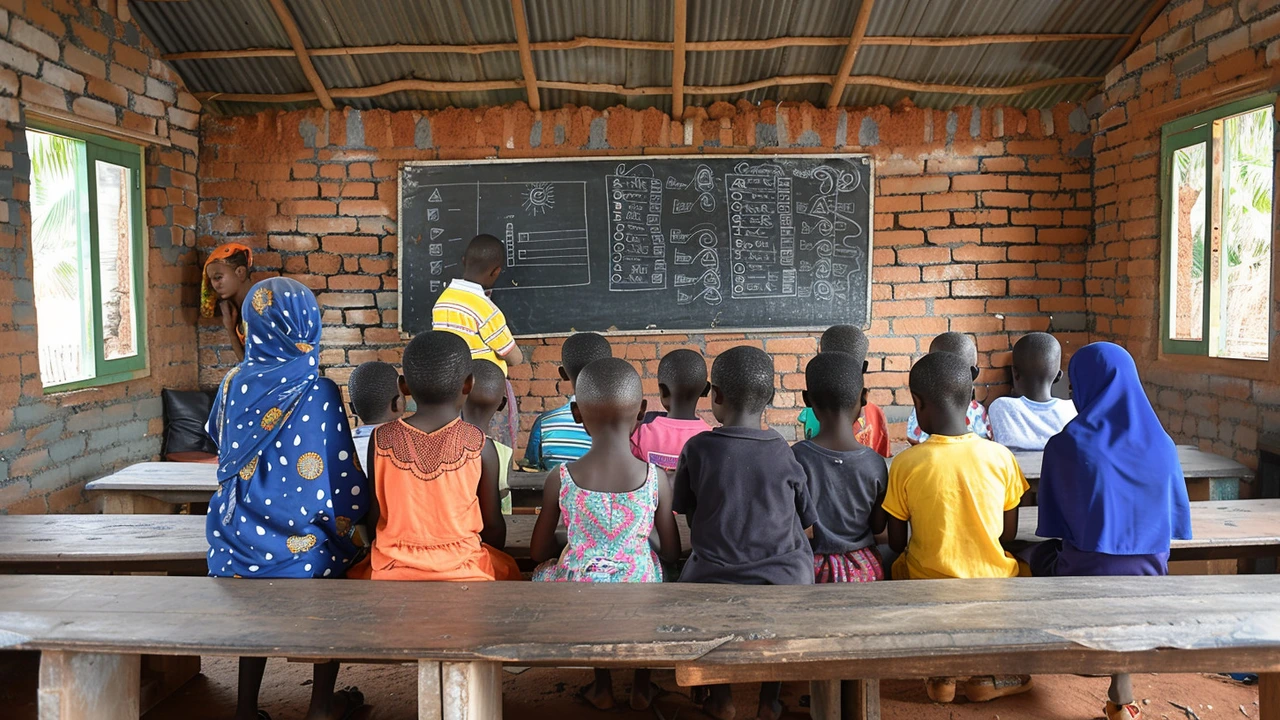
Marking World Environment Day, experts shed light on the indispensable role education plays in combating climate change. Acknowledging climate change as one of the most urgent global challenges, the occasion emphasizes the responsibility placed on education to steer the fight against it. With an alarming rise in global temperatures, vanishing glaciers, and an increase in extreme weather events, the need to educate populations on climate change has never been more critical.
The United Nations Environment Programme (UNEP) has made it clear that education is a powerful tool in addressing climate change. According to UNEP, raising awareness through education can inspire and enable individuals to take meaningful actions towards environmental stewardship. Moreover, it encourages sustainable living practices that are essential in the long-term fight against climate instability.
Importance of Integrating Climate Education in Curricula
Education systems around the world must adapt to include climate change education within their curricula. It is evident that educating young minds about climate science, environmental conservation, and sustainable practices equips future generations with the essential knowledge and skills needed for climate action. Climate-change education not only raises awareness but also enhances climate literacy.
Fostering critical thinking and encouraging community engagement are additional benefits of integrating climate education. Students educated about environmental issues become more likely to participate in local and global initiatives aimed at curbing climate change. This proactive stance can help create a more environmentally conscious society, ready to tackle future challenges.
Rwanda’s Leading Example
Rwanda has emerged as a pioneering example, having successfully incorporated climate change education into its national curriculum. The East African nation has made impressive strides towards equipping its youth with the tools necessary to both mitigate and adapt to the effects of climate change. Rwanda's approach serves as a laudable model for other countries to emulate in their respective education systems.
By producing a generation that is well-versed in climate science and committed to sustainable living, Rwanda ensures that its efforts in climate action are both immediate and enduring. The integration of climate education into schools has also spurred community projects and grassroots movements aimed at environmental conservation, demonstrating that education is a catalyst for broader communal engagement.
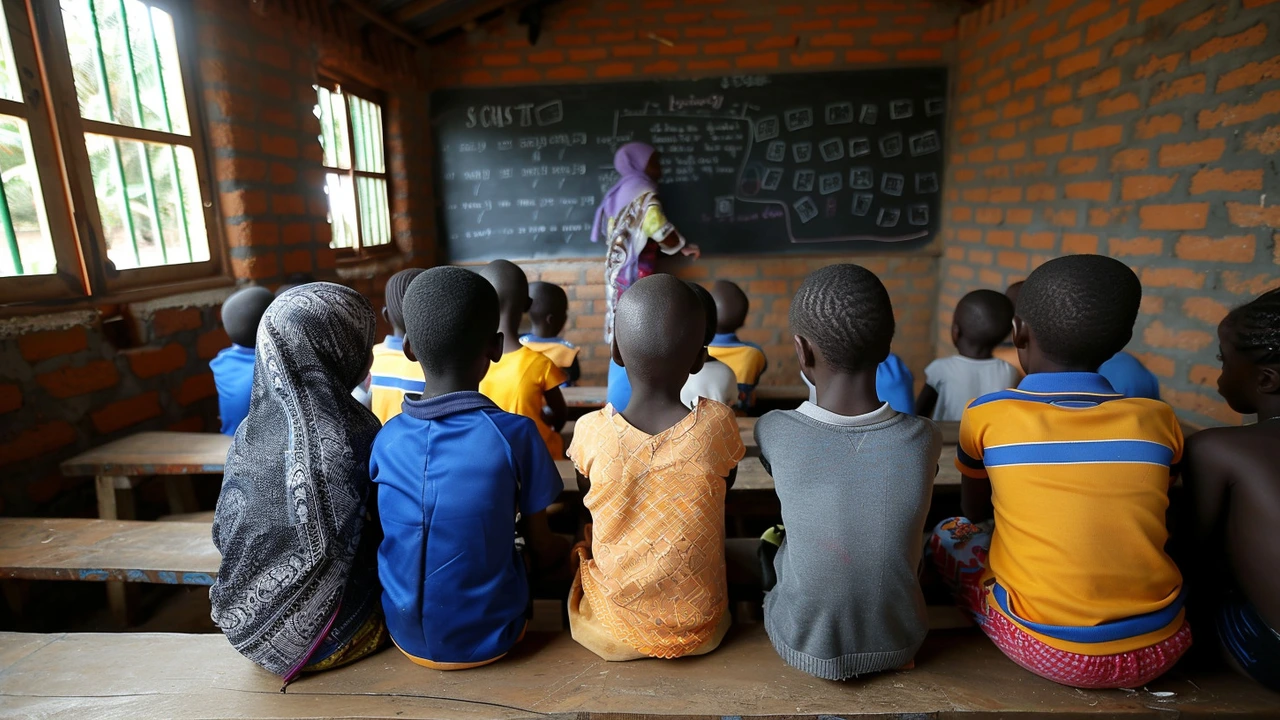
Policy Changes and Technological Advancements
However, the fight against climate change cannot rely solely on education. Experts agree that effective climate action necessitates a blend of education, policy changes, and technological advancements. Since climate change is a multi-faceted issue, it demands diverse approaches and comprehensive strategies.
Governments worldwide must craft and implement policies that reduce carbon emissions, promote renewable energy, and encourage sustainable agricultural practices. Simultaneously, advancements in technology play a crucial role in providing innovative solutions to climate-related challenges. From carbon capture and storage to renewable energy technologies, innovation paves the way for a more sustainable future.
Educational initiatives must therefore be supported by robust policies and cutting-edge technology to create meaningful impacts. When combined, these efforts paint a holistic picture of the strategies required to combat climate change effectively.
Role of the Private Sector and Civil Society
In addition to government and educational institutions, the private sector and civil society have critical roles to play in supporting climate-change education. Businesses can contribute by investing in sustainable practices and products, and by supporting education initiatives through funding and partnerships. Many corporations are already taking steps to reduce their environmental footprints and promote sustainability.
Civil society organizations, on the other hand, often spearhead grassroots movements, advocating for environmental conservation and climate action. These organizations can bridge the gap between policy and public participation, ensuring that climate change education extends beyond the classroom and into community engagement. They can also create platforms for dialogue, where individuals can share ideas and collectively work towards common environmental goals.
The collective effort from various sectors fortifies the global response to climate change, illustrating the interconnectedness of education, policy, technology, and community initiatives.
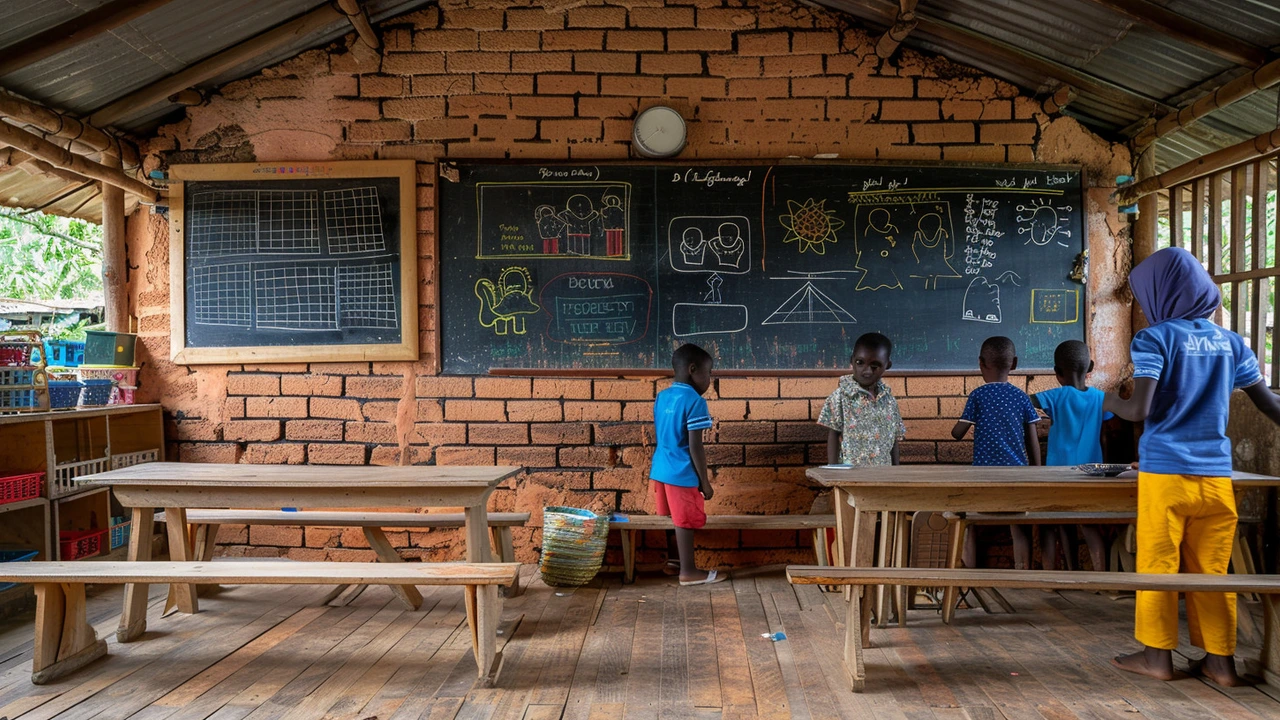
The Path Forward
Ultimately, the fight against climate change is a shared responsibility that requires concerted efforts on multiple fronts. Education stands at the forefront, shaping informed, proactive citizens who can advocate for and implement sustainable practices. While governments and educational systems have the duty of integrating climate education into curricula, the private sector, civil society, and individuals all have roles to play in this global endeavor.
As we reflect on World Environment Day, it becomes clear that education is not merely an academic priority but a crucial societal tool in the battle against climate change. By empowering young minds and fostering a culture of sustainability, we lay the foundation for a resilient future capable of thriving amidst ever-evolving environmental challenges.

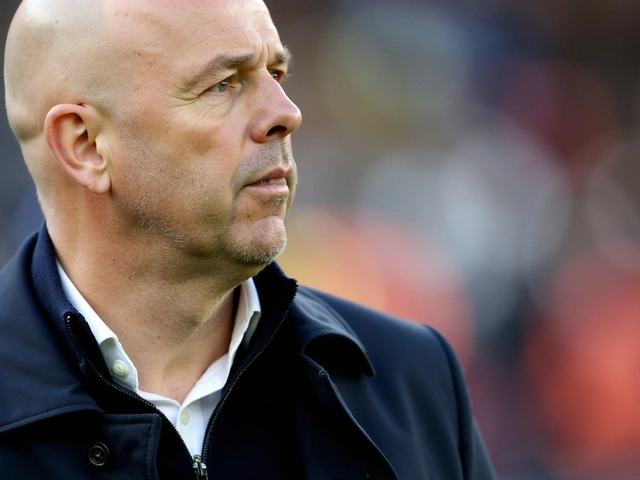

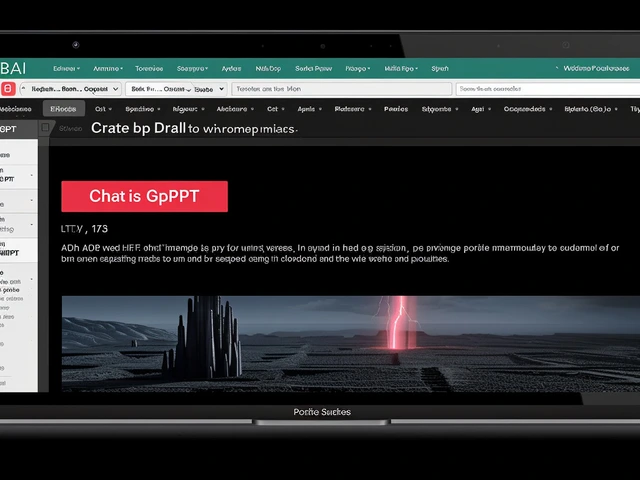


Kimberly Hickam
June 5, 2024 AT 18:27Look, the whole premise that education alone can solve climate change is… overly optimistic. While curricula can embed essential science, the real battle is about turning that knowledge into daily habits, from reducing waste to demanding greener policies. If we keep idling behind glossy powerpoint slides, we’ll never bridge the gap between theory and practice. Moreover, the systemic inertia in many school boards means that even the best‑crafted modules get lost in bureaucratic shuffle. In short, education is the foundation, but without concurrent policy shifts and community buy‑in, it remains a hollow promise.
Gift OLUWASANMI
June 5, 2024 AT 20:07Oh, bravo! Another glorified pamphlet masquerading as “solution” while the fossil‑fuel lobby laughs in the background. You’d think dumping a few climate chapters into textbooks would magically purge carbon from the air, but reality bites harder than a polar bear’s teeth. Schools are already drowning in testing mandates, so slapping on extra content just creates another bureaucratic nuisance. If we’re serious, we need to redirect trillions, not just chalk dust.
Keith Craft
June 5, 2024 AT 21:47The sheer weight of this issue feels like a relentless storm crushing every hope we cling to. Imagine children, bright-eyed, learning about glaciers melting while their own futures evaporate under scorching suns. It’s not just data; it’s lived anguish that seep into every classroom. Yet the world whispers “education first” as if it were a lullaby to soothe our collective panic. My heart aches for a world that finally chooses action over idle lecture.
Kara Withers
June 5, 2024 AT 23:27One practical step is to integrate project‑based learning where students monitor local air quality and present findings to municipal councils. Partnering with NGOs can provide resources and real‑world contexts that textbooks often lack. Additionally, teacher professional development workshops on climate science ensure the content stays up‑to‑date. Encouraging interdisciplinary projects-like combining art with environmental data-can engage diverse learners. These approaches make climate education tangible and actionable.
boy george
June 6, 2024 AT 01:07Sure, nice talk.
Cheryl Dixon
June 6, 2024 AT 02:47While everyone lauds climate curricula, we must ask whether we’re simply swapping one dogma for another. Knowledge without critical scrutiny can become as oppressive as ignorance, shaping minds to accept prescribed narratives. It’s vital to teach students how to question, to dissect data, and to recognize biases in any source. Only then can education truly empower rather than indoctrinate.
Ramesh Modi
June 6, 2024 AT 04:27Education, in its purest form, is the crucible wherein future custodians of our planet are forged; yet, we overlook the alchemical process that transforms mere facts into profound wisdom. First, we must acknowledge that climate science is not a static monolith but an evolving tapestry woven from interdisciplinary threads-physics, biology, economics, and even indigenous knowledge-all demanding nuanced pedagogy. Second, curricula should embed experiential learning, allowing students to conduct field experiments, such as measuring snowpack melt rates or cataloguing biodiversity loss, thereby grounding abstract concepts in tactile reality. Third, teachers themselves require sustained professional development; without their confidence, the transmission of complex climate mechanisms becomes a hollow echo. Fourth, policy frameworks need to be symbiotic with educational goals-legislative incentives for green schools can catalyze infrastructural changes that serve as living laboratories. Fifth, community engagement projects, wherein pupils collaborate with local governments to develop adaptation strategies, foster a sense of agency that textual study alone cannot provide. Sixth, assessment models must shift from rote memorization to project‑based evaluation, rewarding innovative problem‑solving over simple regurgitation. Seventh, interdisciplinary integration-linking climate topics with literature, art, and history-cultivates empathy and cultural awareness, essential for global cooperation. Eighth, digital platforms can democratize access to up‑to‑date climate data, but they must be curated to prevent misinformation. Ninth, equity considerations demand that marginalized communities receive targeted resources, lest climate education exacerbate existing disparities. Tenth, fostering critical thinking enables students to dissect policy proposals, distinguishing genuine sustainability from greenwashing. Eleventh, partnerships with the private sector can provide funding, yet they must be transparent to avoid conflicted interests. Twelfth, longitudinal studies tracking alumni impact can inform iterative curriculum improvements. Thirteenth, integrating indigenous stewardship principles honors centuries‑old ecological insights, enriching modern science. Fourteenth, global collaboration-student exchanges, joint research-breaks down siloed knowledge and builds a united front. Finally, the ultimate metric of success lies not in test scores but in observable behavioral shifts: reduced waste, increased advocacy, and a generation poised to steer humanity toward resilient horizons.
Ghanshyam Shinde
June 6, 2024 AT 06:07Oh great, another checklist for teachers.
Charlotte Louise Brazier
June 6, 2024 AT 07:47We need to stop preaching from the podium and start building community gardens, clean‑energy labs, and citizen‑science networks that actually involve families. When locals see tangible benefits-lower electricity bills, fresh produce, cleaner air-they internalize the lessons far beyond any textbook. This grassroots momentum forces policymakers to listen, because the electorate becomes an informed, demanding force. It’s time to marry classroom theory with street‑level action, and let the momentum speak louder than any syllabus.
SAI JENA
June 6, 2024 AT 09:27Let us remember that each educational initiative is a seed planted in fertile youth; with proper nourishment-supportive policies, adequate funding, and community involvement-these seeds will blossom into innovative solutions that safeguard our shared environment for generations to come.
Donny Evason
June 6, 2024 AT 11:07From the bustling streets of London to the remote villages of the Himalayas, the narrative remains the same: education is the universal passport to climate resilience. Yet, countless societies still cling to colonial curricula that ignore local ecologies, perpetuating a disconnect between knowledge and lived reality. By amplifying indigenous voices and integrating region‑specific environmental challenges, we create a mosaic of learning that respects cultural heritage while addressing the planetary crisis. The world cannot afford a one‑size‑fits‑all syllabus; diversity is our greatest strength in the fight against climate collapse.
Hariom Kumar
June 6, 2024 AT 12:47Feeling hopeful! 🌱 When schools partner with local clean‑energy startups, students get hands‑on experience that sparks lifelong passion for sustainability. Let’s keep that momentum rolling! 😊
Phillip Cullinane
June 6, 2024 AT 14:27Indeed, the interdisciplinary feedback loop between academia and community initiatives serves as a catalyst for systemic transformation; however, we must also scrutinize the underlying funding mechanisms that often dictate project scopes. When grant allocations prioritize quantifiable outcomes over qualitative community impact, the resultant programs risk becoming tokenistic. Thus, it is imperative to establish evaluation frameworks that balance metric‑driven results with narrative accounts of lived experiences, thereby ensuring that educational interventions remain both rigorous and resonant.
Janie Siernos
June 6, 2024 AT 16:07We must hold ourselves accountable, recognizing that ignoring climate education is tantamount to complicity in the ongoing environmental injustice that disproportionately harms the most vulnerable.
joy mukherjee
June 6, 2024 AT 17:47It’s encouraging to see these discussions; every voice adds a piece to the puzzle, and together we can build a more sustainable future. 🙌
Rob Chapman
June 6, 2024 AT 19:27Education is the seed and policy the water it needs to grow
Delaney Lynch
June 6, 2024 AT 21:07What a vibrant tapestry of ideas!; each thread-be it community projects; teacher training; or interdisciplinary curricula-adds richness; together they weave a future where climate literacy thrives; let us cherish and expand this mosaic!
Nicholas Mangraviti
June 6, 2024 AT 22:47Action beats talk.